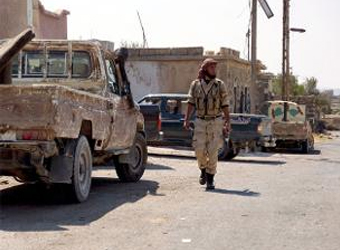Arab League chief Ahmed Abo El-Gheit has said that the process of reconstruction in Syria, which has been embroiled in a civil war since 2011, will cost $900 billion, Egypt’s state-owned news agency MENA reported on Saturday.
Speaking during a celebration marking 70 years since the establishment of the Arab League at Alexandria University, Abo El-Gheit said that the ongoing war in Syria has led to the displacement of roughly five million people, arguing that the pan-Arab organisation is passing through “the most difficult period in its history.”
“Fifty percent of the world refugees are Arabs, which means that one in every three refugees is Syrian,” he added.
Abo El-Gheit also noted that other Arab states have suffered destruction over the past six years, which jeopardises the social fabric of Arab societies.
The Arab League chief also pointed to Iraq, describing it as ” torn by terrorism, the Islamic State militants and civil war.”
During a conference in Brussels attended by 70 states in early April, international donors pledged $6 billion in aid for war-damaged Syria.
In addition to presenting financial support to Syria, the aim of the Brussels meeting was to discuss a political solution to end the civil war, according to an AP report.
The meeting was organised by Qatar, Kuwait, Norway, the European Union and the United Nations.
At last year’s London donors conference, more than $12 billion in pledges were announced for aid; $6 billion for 2016 and a further $6.1 billion for 2017-20.
UN relief coordinator Stephen O’Brien has said that the immediate needs in Syria should be met by collecting $8 billion for 2017.
According to figures by the UN Refugee Agency (UNHCR), Syrians displaced by the war since 2011 have sought refuge in neighbouring countries such as Lebanon, Turkey, Jordan and Egypt.
The international organisation also says that 14 million people in Syria are “in need,” some 6.3 million are internally displaced and roughly five million people are “hard to reach,” since they live in besieged areas.
Source: Ahram online


